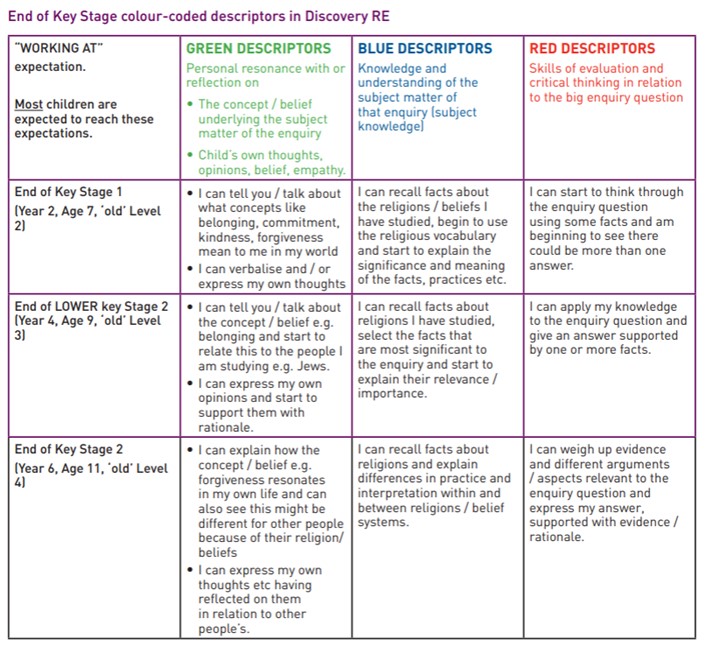Religious Education
“Religions are different roads converging to the same point. What does it matter that we take different roads as long as we reach the same goal? In reality, there are as many different religions as there are individuals.”
Gandhi
What is the intent of Religious Education at Meadows?
At Meadows, we aspire to do our best to support all children to develop an understanding of the place that religion plays in people’s lives. We want our pupils to:
- Learn from different religions and beliefs in a creative and explorative way, with local visitors and religious leaders visiting where possible.
- Be free to make their own choices and decisions concerning religion and belief. RE does not try to persuade but rather to inform and develop the skills with which evaluation can take place.
- Share their knowledge and experience with others.
- Revisit the different religions to build on the knowledge they already have.
- Embrace diversity and create a learning journey that leaves lasting memories.
How is Religious Education implemented at Meadows?
RE is statutory and sits alongside the National Curriculum. However, it serves not only the SMSC and
British values agendas but also contributes significantly to literacy skills as well as linking easily to many areas of the National Curriculum.
At Meadows, RE is taught to all age groups mainly through weekly lessons to ensure we meet the expected time allocation and the curriculum coverage it needs to fully explore the subject.
- We use the ‘Discovery RE’ Scheme as a main resource, which is supplemented with other resources to provide first hand experiences for the children.
- Discovery RE advocates an enquiry based approach with a 4 step process. Step 1 – Engagement, Step 2 – Investigation, Step 3 – Evaluation and Step 4 – Expression. There is a key question for each topic, then lessons work through the 4 step process.
- To enhance the learning of RE, we encourage learning about religious experiences, such as, visiting the local church, meeting religious speakers and handling real artefacts, learning through stories and drama where possible.
How does Religious Education progress at Meadows?
In line with the Telford and Wrekin agreed syllabus, Christianity is taught in every year group and within that, we aim to enable children to understand the core beliefs of Christianity and the concepts that underpin it. Additionally, we also do this with each of the other 5 principal religions. We have chosen to cover all main principal religions to reflect on our school and wider community and after feedback from pupils wanting to learn about a variety of different religions.
- In Nursery and Reception, we are trying to lay the foundations, help children to experience some of the concepts and experiences that underpin religion.
- In Year 1 we look at Christianity and Judaism.
- In Year 2 we look at Christianity and Islam.
- In Year 3 we look at Christianity and Sikhism.
- In Year 4 we look at Christianity and Buddhism.
- In Year 5 we look at Christianity and Hinduism.
- In Year 6 we look at Christianity and Islam.
In the Telford and Wrekin agreed syllabus, there are key questions for the children to consider by the end of each key stage.

End of Early years:
- Who am I?
- Who is in the community?
- How do people look after each other in the community?
- What do people celebrate?
- Why do people celebrate?
- What do religious people celebrate?
- How are festivals celebrated by religious people?
- What are stories that religious people think are special?
End of Key Stage 1:
- What are the questions that puzzle us?
- How do religious and non-religious people begin to answer these questions?
- Why is respect important for everyone?
- How can we be more inclusive of people of different races, genders and religion and beliefs?
- What do religious people believe about God?
- How is God shown in the stories of creation?
- What responsibilities do people have for the world?
- What are symbols?
- Why are symbols important in life?
- What religious symbols do people use?
- Why are Scriptures important for religious people?
- What can different religious people learn from stories?
- Why can buildings be special to people?
- What do religious buildings look like in Telford and Wrekin?
- How are religious buildings used?
- Why are religious buildings important to believers?
End of Key Stage 2:
- Who is God?
- Why do people pray?
- Does a beautiful world mean there is a God?
- How are beliefs about God and the spiritual expressed through the arts?
- Why are people religious?
- What are the challenges of religious commitment?
- How do religious stories show that humans should care for others and the world?
- How can Scriptures be used to share wisdom and shape the lives of believers?
- How can some religious people be seen as inspiring?
- Why do some people think Jesus is inspiring?
- Is life like a journey?
- How do religious people mark important stages of life?
- Why are festivals important to a community and a person’s religious identity?
- Why are places of worship important to a community and a person’s religious identity?
- What are the rules and values held by religious and non-religious people?
- What can we learn from the values of Christians, Humanists and others?
- Temptations: what can we learn from Christians and Muslims?
- What will make our community more respectful and inclusive to people of all races, genders and religions?
- How do people live their religions today? (E.g. The Five Pillars of Islam)
- How do religious charities show the values of their religion? (E.g. Christian Aid and Islamic Relief)
- Can religious charities change the world?
How can I support my child with Religious Education?
- Talk to your child about different religious festivals.
- Join in with community religious festivals for your children to learn more about different beliefs and cultures of the people around them.
- All religions share similar values and morals, many of which are brought to life in story books, so share some of these books with your child. Include stories from other cultures and religions into your book sharing routines. Some examples can be found here: Books For Bugs
- Identifying and celebrating religions/ cultures of people living around us.
- Allowing your child to have open conversations and discussion about belief, values, religion and cultures.
Useful links
Information about different religions for Key Stage 1.
Information about different religions for Key Stage 2.
Important information for parents and carers:
Parental Right to Withdraw from Religious Education
At Meadows, we respect the diverse beliefs of our families and uphold the legal rights of parents and carers. In accordance with UK law, parents have the right to withdraw their child, either wholly or in part, from Religious Education (RE) lessons and collective worship. This applies to all pupils in primary education, regardless of the school’s religious affiliation. Parents do not need to provide a reason for their decision, and the school will ensure that children who are withdrawn are appropriately supervised during this time.


